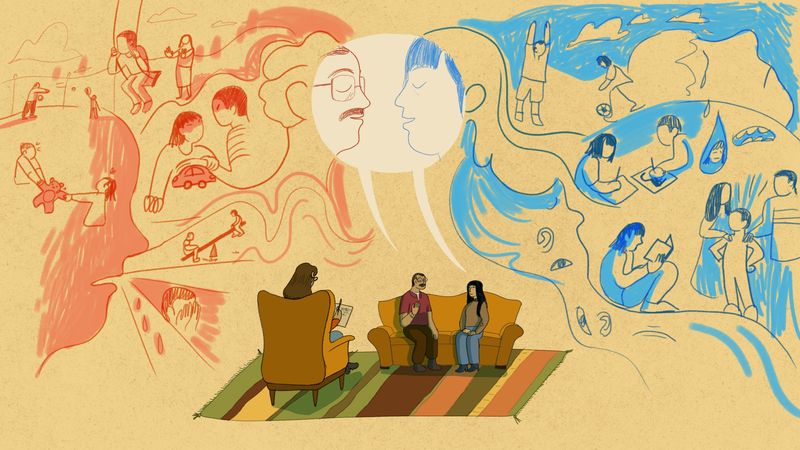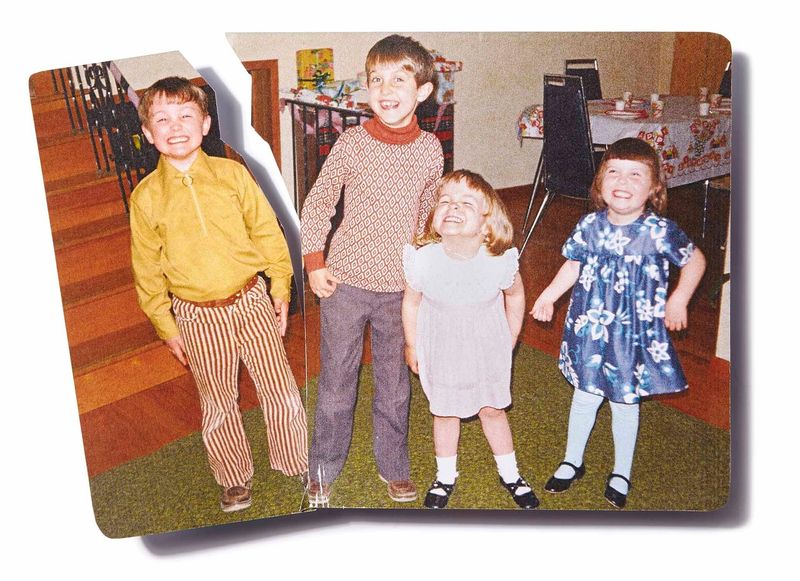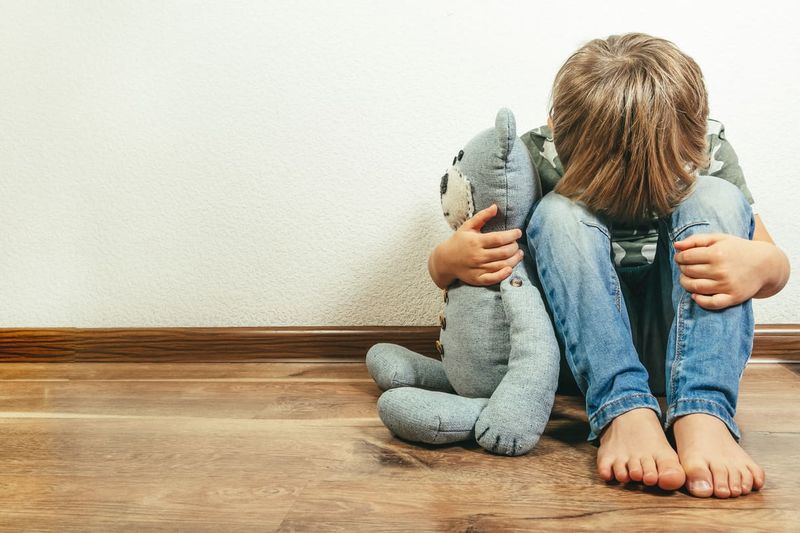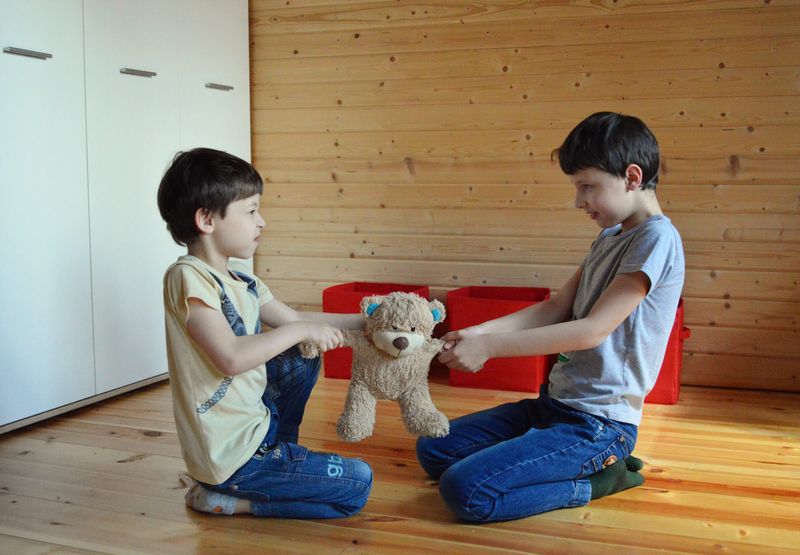15 Reasons Siblings Grow Apart Through The Years
The evolution of sibling relationships is a nuanced journey marked by subtle shifts rather than dramatic ruptures. Childhood bonds, though initially strong, often face challenges as siblings grow older and navigate the complexities of adult life.
This blog explores 15 reasons why siblings may drift apart over time, highlighting the gentle ebb and flow of life choices, communication styles, and individual growth that can naturally create distance between once-close brothers and sisters.
1. Different life choices pull you into separate worlds

As siblings grow older, their paths often diverge based on career choices, personal interests, and life aspirations. One might choose a corporate path, while another pursues artistic endeavors. These choices naturally create different social circles and daily routines.
Over time, the differences in lifestyle can introduce a quiet distance, not rooted in conflict but in the simple reality of living separate lives. Even shared childhood memories may fade as new experiences overshadow the past.
As each sibling immerses in their world, maintaining the connection requires intentional effort that might not always be feasible, leading to a gentle drift apart.
2. One always ends up giving more than the other

In many sibling relationships, a recurring theme of one sibling giving more time, energy, or emotional support can develop. This imbalance might lead to resentment or a sense of underappreciation.
The sibling who consistently finds themselves in the giving role may feel drained, while the other might remain unaware of the growing emotional gap. As years go by, this pattern can solidify into a broader sense of inequality that quietly erodes the bond.
Without open communication and mutual understanding, the relationship risks becoming one-sided, with one sibling feeling like they are carrying the weight alone.
3. Unspoken childhood resentments never fully go away

Childhood is full of moments, both joyful and challenging, that shape sibling dynamics. Sometimes, minor grievances or perceived slights during childhood remain unaddressed, quietly simmering beneath the surface.
These unspoken resentments might not disrupt the relationship immediately, but they can create an undercurrent of tension that grows with time. As adults, the siblings might find themselves avoiding certain topics or falling into old patterns without realizing why.
This quiet tension can lead to avoidance or a superficial relationship, where deeper connections are avoided for fear of opening old wounds.
4. Constant comparison ruins adult relationships too

From childhood, siblings are often compared to each other by family, teachers, or peers. These comparisons can linger into adulthood, fostering feelings of inadequacy or competition.
Even subtle comments about achievements or life choices can reinforce a sense of rivalry. Over time, this persistent comparison can breed resentment or self-doubt, quietly driving a wedge between siblings who might otherwise be supportive.
The relationship can become strained as one sibling may feel perpetually overshadowed or undervalued, leading to an emotional distance that is difficult to bridge.
5. Shared trauma creates tension instead of closeness

Experiencing trauma together doesn’t always lead to closeness. For siblings, shared traumatic events can sometimes create a barrier rather than a bond. Each sibling processes pain differently, and differing coping mechanisms can lead to misunderstandings or isolation.
The trauma might bring up unresolved emotions that are expressed in opposite ways, leading to emotional distance. Instead of providing mutual support, siblings might remind each other of a past they’d rather forget.
Without effective communication and healing, the shared trauma can act as a continuous source of tension, rather than a shared strength.
6. Personality differences become harder to bridge

As individuals grow older, personality traits may become more pronounced, making it harder for siblings with different dispositions to connect. While childhood often masks these differences, adulthood demands a more conscious effort to bridge them.
One sibling may be extroverted and social, while the other is introverted and reserved, leading to mismatched expectations in interactions. Without understanding and respecting these differences, misunderstandings can arise.
The quiet drift occurs when siblings are unable or unwilling to adapt to each other’s evolving personalities, resulting in less frequent or meaningful interactions.
7. A lack of effort turns into emotional distance

Relationships require effort, and sibling bonds are no exception. Over time, the natural ease of childhood interactions may fade, necessitating a more deliberate effort to maintain closeness.
As adult responsibilities increase, it’s easy to deprioritize regular communication or shared activities. This lack of effort can inadvertently lead to emotional distance, as siblings become absorbed in their separate lives.
Without intentional actions to nurture the relationship, moments of connection grow sparse, and the bond that once seemed unbreakable can weaken over time.
8. Big milestones aren’t celebrated the same way

Life’s milestones, once shared with joy, can become sources of tension if siblings don’t celebrate them equally. Different priorities or life stages might mean one sibling’s achievements are given more weight or attention.
If one sibling feels their important moments are overshadowed or ignored, it can create feelings of neglect or jealousy. This imbalance in recognition can quietly strain the relationship, as the overlooked sibling harbors feelings of being undervalued.
Over time, these uncelebrated milestones can accumulate, leading to a gradual distancing fueled by perceived emotional neglect.
9. One moves forward while the other stays stuck

In the journey of life, not everyone moves at the same pace. Sometimes, one sibling seems to progress steadily while the other feels stagnant. This disparity can create tension, as the more ‘stuck’ sibling may feel left behind or misunderstood.
The sibling moving forward might struggle to relate to the other’s challenges, leading to feelings of isolation. These differences in life progress can subtly create distance, as conversations and shared experiences dwindle.
The relationship requires empathy and patience to bridge the gap between differing life stages, without which, siblings may drift apart.
10. Family dynamics pit siblings against each other

Family dynamics can play a powerful role in shaping sibling relationships. Sometimes, parents or extended family unintentionally pit siblings against each other through favoritism or expectations. This can create competition or jealousy, fostering a long-standing rivalry.
These dynamics can persist into adulthood, influencing sibling interactions and creating a barrier to closeness. If one sibling feels perpetually overshadowed or pressured to compete, the relationship can become strained.
Addressing these ingrained family dynamics is essential, or the sibling bond may weaken under the weight of unspoken rivalries and resentments.
11. Adult friendships take the place of sibling bonds

As siblings grow into their own lives, adult friendships often take precedence over sibling bonds. Friends become the chosen family, offering support and companionship tailored to individual needs and interests.
This shift is natural, but it can lead to a quiet distancing between siblings who once relied solely on each other for emotional support. As each sibling invests more time and energy into friendships, the sibling relationship can become secondary.
Without deliberate effort to integrate siblings into these new friendship circles, the bond may weaken as shared experiences become less frequent.
12. Communication styles clash over time

Communication is key in any relationship, and siblings are no exception. Over time, individual communication styles can evolve, leading to misunderstandings. What once was a shared language in childhood may become a source of friction.
One sibling may prefer direct, frequent communication, while the other opts for infrequent, thoughtful interactions. These differences can create frustration if not acknowledged and respected.
Without adapting to each other’s styles, siblings may find their conversations dwindling, leading to an emotional distance that becomes challenging to bridge.
13. You only talk out of obligation

As siblings navigate adulthood, the frequency and quality of their interactions can change. What once was a joyful catch-up can turn into a routine obligation, where conversations feel more like a duty than a delight.
These obligatory interactions often lack depth and authenticity, leading to a sense of detachment. Over time, the connection becomes more about maintaining appearances than true engagement.
Without revisiting the foundation of their relationship, siblings may find themselves drifting apart, as the bond becomes a mere formality rather than a source of genuine connection.
14. One keeps score while the other lets go

In relationships, the act of keeping score can create significant tension. If one sibling continually tallies perceived slights or favors, while the other focuses on letting go, imbalance arises.
This scorekeeping can generate resentment, as the sibling who keeps track may feel disproportionately wronged or undervalued. Meanwhile, the other might be unaware of the accumulating grievances.
The relationship risks evolving into a ledger of unbalanced exchanges rather than a supportive bond, leading to gradual distancing as interactions become colored by past grievances.
15. The relationship becomes frozen in who you used to be

Sometimes, sibling relationships remain anchored in past roles and dynamics, becoming frozen in time. Despite growing older, siblings may find themselves reverting to childhood patterns or expectations.
This static nature can prevent genuine growth and understanding, as interactions are filtered through outdated perceptions. The relationship can become stagnant, unable to adapt to the changes in each sibling’s life.
Without breaking free from these old roles, siblings might find their connection weakening, as they struggle to relate to who each has become rather than who they once were.







